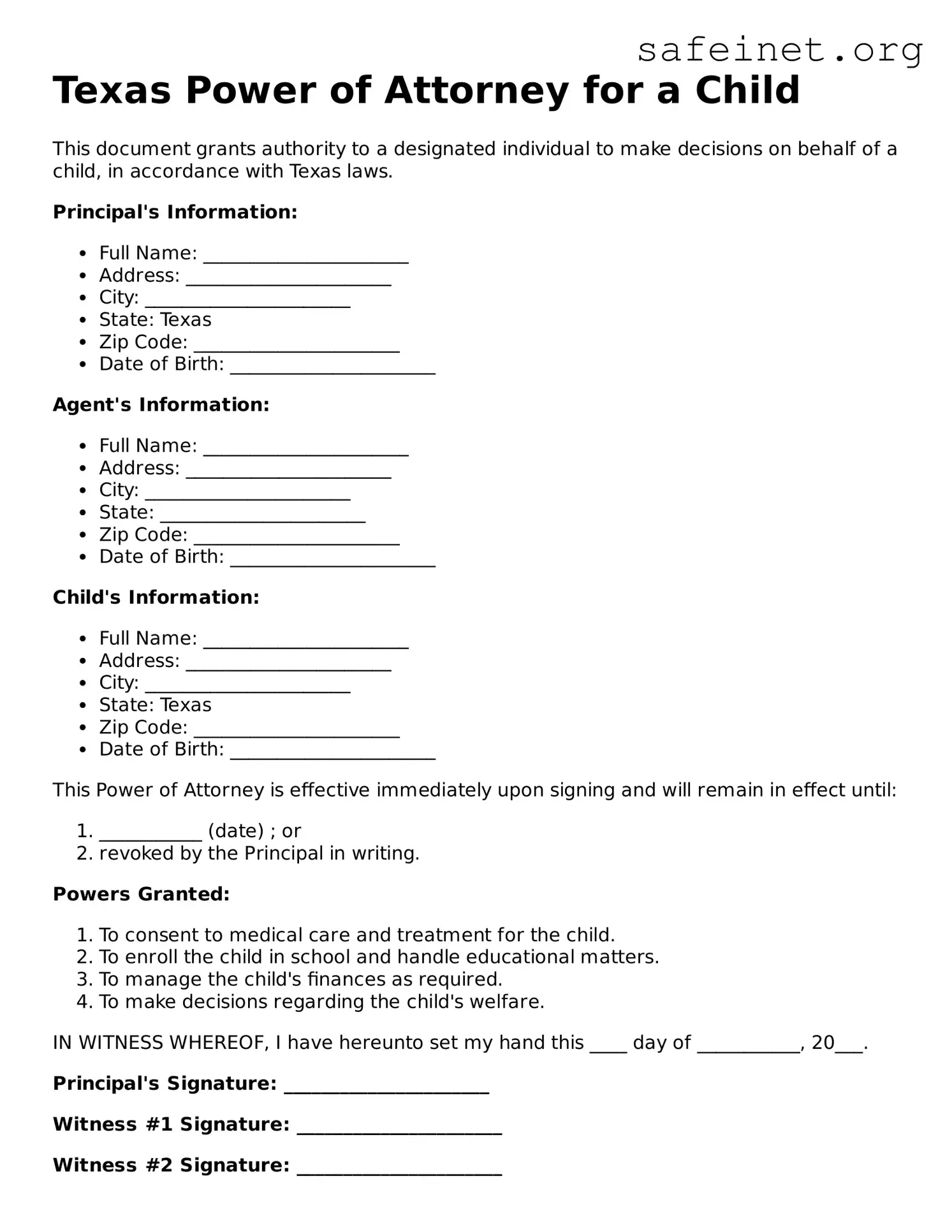What is a Texas Power of Attorney for a Child form?
The Texas Power of Attorney for a Child form allows a parent or legal guardian to grant temporary authority to another adult to make decisions on behalf of their child. This document is useful in scenarios such as travel, medical emergencies, or when parents are away for an extended period. It ensures that the child’s needs can be met by someone trusted during the absence of the primary caregiver.
Who can act as an agent under this Power of Attorney?
Any competent adult can be appointed as an agent. This can include relatives, family friends, or neighbors. The key is that the chosen agent must be trustworthy and able to act in the best interests of the child.
How long is the Power of Attorney for a Child valid?
The Texas Power of Attorney for a Child does not have a fixed duration, but it is often effective until a specified date or until the child reaches a certain age. Parents can terminate the authority at any time by notifying the agent in writing. It’s crucial to choose the appropriate timelines that suit your situation.
Does the agent have the authority to make medical decisions?
Yes, if the Power of Attorney form grants that authority. Parents can specify the powers they wish to bestow upon the agent, including the ability to make medical decisions. It's essential to clearly outline these powers in the document to avoid any confusion during emergencies.
Can this Power of Attorney be revoked?
Yes, the Power of Attorney can be revoked at any time by the person who created it. This must be done in writing and provided to the agent and any relevant parties. Revocation becomes effective once the agent is made aware of it.
Is notarization required for the Power of Attorney for a Child?
While it is not a strict requirement, having the document notarized is highly recommended. Notarization adds an extra layer of authenticity and can help prevent disputes regarding the validity of the document later on.
What information is required on the form?
The form typically requires the full names and addresses of the child and the appointed agent. It should also include the duration of the authority granted, and any specific powers given to the agent, especially those related to medical care and education.
Where can I obtain a Texas Power of Attorney for a Child form?
The form can often be obtained through legal document services, local attorneys, or online legal resources. Ensure that the form you are using is the latest version and complies with Texas laws to ensure its validity.
